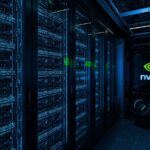In a move to bolster the nation’s economic robustness, JPMorgan Chase has unveiled the Security and Resiliency Initiative, directing $1.5 trillion towards key industries across the United States. With growing concerns about America’s over-reliance on fragile supply chains, especially in essential sectors like minerals and advanced manufacturing, this initiative aims to anchor economic stability and independence. The plan outlines a 10-year strategy featuring substantial direct equity and venture capital investments to spur growth and innovation in strategic sectors.
JPMorgan’s prior initiatives show a consistent focus on enhancing economic security by investing in infrastructure and technology. Historically, the firm emphasized sustainable growth projects, often reflecting similar investment scales. However, this new strategy highlights a sharper focus on national security, particularly in areas affected by geopolitical tensions. Comparatively, while past efforts leaned more towards broad banking innovations, this initiative targets specific national resilience and economic emancipation projects.
What Does the Initiative Cover?
The Security and Resiliency Initiative delves into various sectors foundational to national security. Beyond critical minerals and pharmaceutical projects, it stresses manufacturing advancements, seeking to secure these industries from vulnerabilities linked to external dependencies. The initiative also accommodates defense and aerospace projects, prioritizing energy independence, which has become crucial amid fluctuating global energy dynamics.
Addressing AI and Advanced Technology Demand?
This plan integrates frontier technologies like artificial intelligence, cybersecurity, and quantum computing. With AI’s rising prominence and hidden deployment costs documented by the World Economic Forum, JPMorgan’s investments will focus on optimizing resources spent on data preparation and system integration. Addressing these AI challenges aligns with their overarching goal to sharpen the technological edge of U.S. industries.
“It has become painfully clear that the United States has allowed itself to become too reliant on unreliable sources,” noted Jamie Dimon, JPMorgan Chase’s Chairman and CEO, emphasizing the urgency for reduced dependency.
By strategically financing endeavors like semiconductors and data centers, the initiative aims to align the nation’s technologies with modern demands, reinforcing infrastructure resilient enough to meet future challenges.
JPMorgan’s partnership with enterprises like Cognizant and Telstra demonstrates the practical benefits and challenges of deploying AI at scale. Such collaborations indicate the bank’s commitment to transforming saved resources into tangible performance improvements, underscoring the complexity of widespread AI integration.
Jamie Dimon reiterated,
“Our security is predicated on the strength and resiliency of America’s economy. America needs more speed and investment.”
This reflects the plan’s broader ethos of energizing the nation’s economic foundation through swift and decisive actions.
This expansive initiative by JPMorgan signals a strategic pivot focusing on fortifying national economic secures through targeted intervention and investment. This approach seems timely as global supply chain vulnerabilities and AI-related costs become increasingly apparent. Understanding and addressing these challenges provide crucial insights into how future-proofing America’s critical industries can bolster national security and economic resilience.









